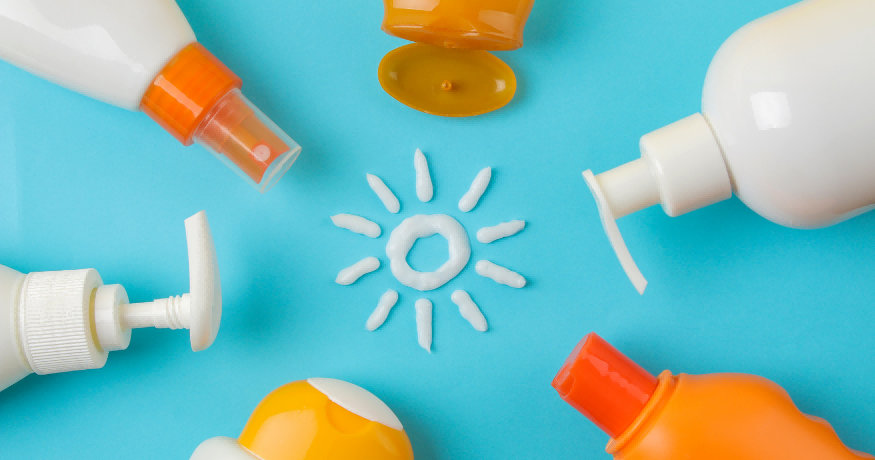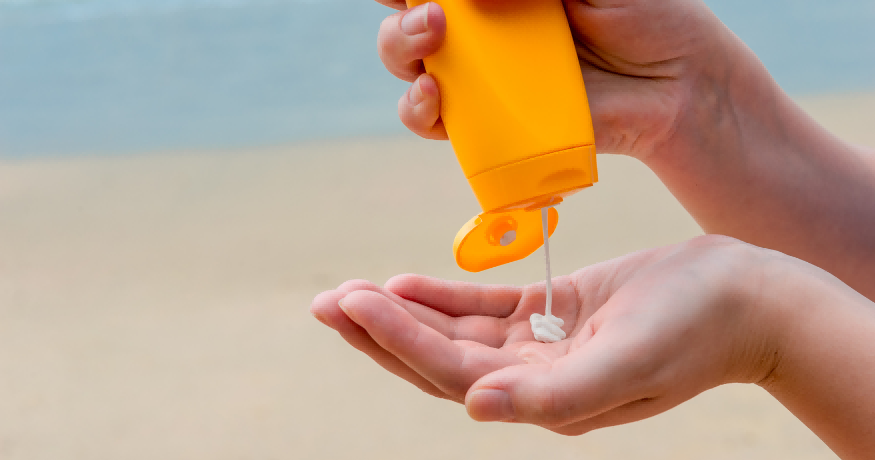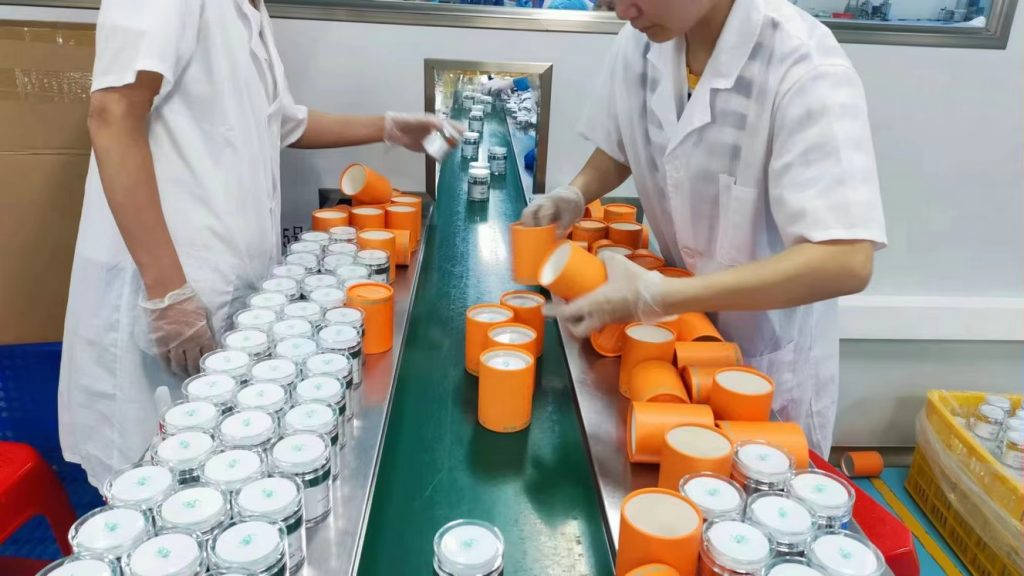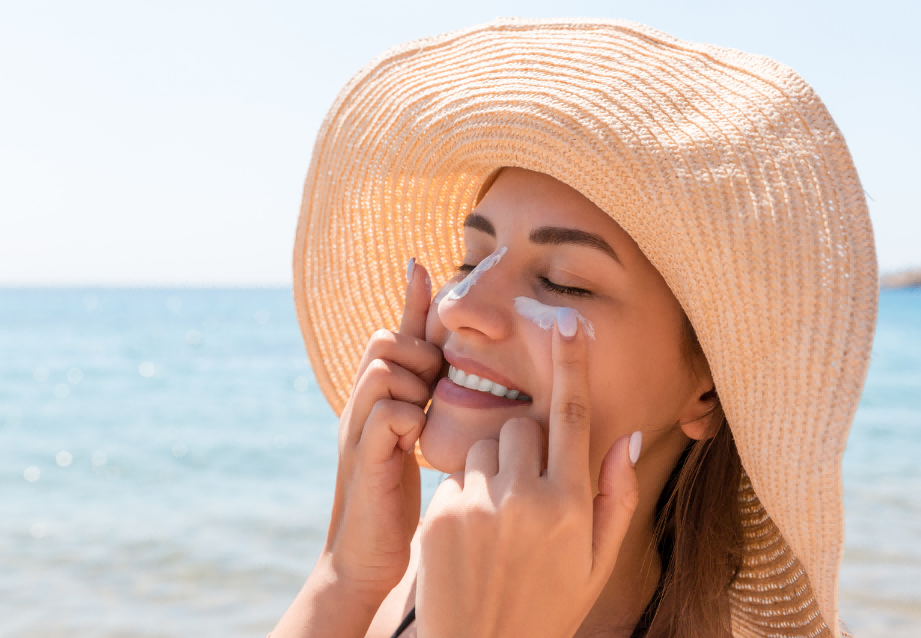Sunscreen is no longer something you throw in your beach bag. It’s now a staple product of daily skincare routines all over the world. But with growing demand comes growing demand for brands to stand out. Enter bespoke sunscreen.
If you’re looking to create your own skincare line, expand your product line, or enter the growing sun care category, this book walks you through it all—everything from current market trends to how you can formulate an authentic formula that reflects your brand.
Let’s start with the bigger picture.
Market Insight: Revealing New Trends in the Sunscreen Market
The market for sunscreens all over the world is expanding at a quicker rate than ever. It’s increasing at the rate of 12% per year, and the pace is likely to increase even more. Why the boom?
Consumers are becoming increasingly educated about the harm that sun exposure can cause—not only UV radiation, but blue light from screens, pollution, and even the cumulative effects of daily sun exposure. So consumers today are not only wanting SPF, but overall protection with added skin benefits.
This shift is opening up vast opportunities for private label sunscreen makers, especially those making customized sunscreens for different needs and skin types.
But it’s not all sunshine. Creating a fantastic custom sunscreen product comes with its drawbacks. All but a handful of brands face challenges such as:
- Finding a balance between sun protection and skin feel
- Managing sophisticated regulations of foreign markets (e.g., the FDA in the USA or CPNP in the EU)
- Supply chain management, especially in peak seasons
To anyone developing a new brand or collaborating with a professional cosmetics company, it is essential to realize such issues beforehand. Fortunately, firms like BonnieCo, a well-established private label cosmetics company, assist their customers in overcoming such issues with expertise and guidance.
So how do you know how to create the right type of sunscreen? Let’s check out what’s popular nowadays.

Top Sunscreen Categories and Breakthrough Technologies
Sunscreen is not a one-size-fits-all product anymore. If you’re heading to the beach, to work, or out shopping for your children, different lifestyles demand different formulas. If you’re a business manufacturing a customized sunscreen, what’s popular can help you design a product that is ahead of its time in an overcrowded industry.
Here is a side-by-side comparison of today’s most popular sun categories, the technology involved, and how each can be branded for your private label brand.
Table 1: Analysis of Popular Sunscreen Categories and Core Technologies
| Sunscreen Type | Representative Brands | Core Ingredients & Technologies | Customization Highlights |
| High-Performance Outdoor Sunscreen | Anessa, La Roche-Posay | Zinc Oxide, Octocrylene, Nano-Encapsulation | Water-resistant & sweat-resistant for up to 50 minutes. Perfect for sports or beach use. Ideal for custom sunscreen in active lifestyle brands. |
| Lightweight Everyday Use | Winona | Avobenzone, Tanacetum Extract, Hyaluronic Acid | Moisturizing, non-greasy, and no white cast. Great option for private label sunscreen for daily skincare lines. |
| Sensitive Skin (Infants & Pregnant Women) | Thinkbaby, Evereden | Non-nano Zinc Oxide, Botanical Soothers (e.g., Aloe, Chamomile) | Gentle formulas, EWG-certified. Popular for wholesale sunscreen for private label in baby or clean skincare markets. |
| Anti-Aging Makeup Primer Sunscreen | Lancôme, Clé de Peau Beauté (CPB) | Peptides, Bosin, Mai-Sensor, Blue Light Blockers | Combines SPF with skincare. Ideal for high-end or luxury private label cosmetics manufacturers. |
| Transparent Sport Spray | Neutrogena, Banana Boat | Silicone Oils, Aerosol Delivery, Quick-Drying Film | Full-body spray, 360° coverage. Fast-evaporating for athletes. Excellent for customized sunscreen products targeting performance users. |
This table demonstrates how diverse sunscreen production is. Whether you’re developing an everyday lightweight product or a performance-focused sport spray, having a private label sunscreen manufacturer like BonnieCo provides you with the means to make it possible.
And if you’re attempting to enter the wholesale sunscreen industry, knowing these types is paramount in determining where you place yourself.
When you work with an OEM skin care manufacturer like BonnieCo, you can utilize these categories as the foundation for building your own branded sunscreen. Prior to doing so, however, it may be beneficial to think about what kind of customization will be most beneficial to your company.
The Four Pillars of Custom Sunscreen Formulation
Making a great custom sunblock is more than just discovering ingredients. It’s about crafting a formula that achieves your brand objectives, your customer requirements, and your region’s laws. Let’s divide it into four areas of consideration:

1. Customization by Functionality
Start by thinking about what your sunscreen needs to do. Daily day-to-day use products can be purchased with SPF 30+ and PA+++, while sunscreens used for outdoor purposes need SPF 50+ and PA++++.
Want to take it a step further? You can add features like:
- Blue light protection and pollution protection
- Whitening agents like niacinamide
- Anti-aging substances like peptides or resveratrol
With a private label cosmetics company, you can select the ideal set of qualities for your audience.
2. Customization by Regional Regulations
When developing a specially designed sunscreen for export markets, regulation compliance is as critical as the product itself. What is acceptable in America is forbidden in Europe. A best-selling sunscreen in Southeast Asia can require halal certification to be sold in the Middle East. The regulations vary from market to market. An expert cosmetics manufacturer needs to understand how to deal with them.
The table below outlines the most critical regulations by region—and how BonnieCo, as a professional cosmetics manufacturer, supports brands in complying with them effortlessly.
Table 2: Customization According to Regional Regulations
| Region | Main Regulatory Focus | BonnieCo Compliance Solutions | Why It Matters for Custom Sunscreen |
| USA | FDA OTC Monograph, SPF labeling, Drug Facts compliance | Full Drug Master File (DMF) support, FDA registration | Required for legal sale in the U.S. market. A must for private label sunscreen manufacturers targeting North America. |
| European Union (EU) | CPNP registration, banned/restricted ingredient list (e.g., PABA), 26 UV filter limit | CPNP compliance, EU-restricted filter alternatives | Essential for professional cosmetics manufacturers entering EU retail or e-commerce platforms. |
| Southeast Asia (e.g., Indonesia, Malaysia) | BPOM registration, heavy metal/microbiological testing, halal compliance in some areas | Testing and formulation aligned with BPOM. Produced in Class 100,000 dust-free facility | Important for B2B cosmetics suppliers in Asia. Builds trust with local buyers and consumers. |
| Middle East | Halal certification, alcohol-free, perfume-free formulations | Support for religious certifications and region-specific formulation guidelines | Key for OEM skin care manufacturers selling in the GCC or broader Middle East market. |
As the table illustrates, global compliance is not something you would care to do alone. That is why established OEM skin care producers such as BonnieCo include regulatory support as part of turnkey manufacturing. From FDA compliance labeling to halal-friendliness, you don’t just have manufacturing—you have peace of mind. That is important if you are building a brand for b2b cosmetics or wholesale sunscreen for private label markets.
3. Customization of form and texture
Not everyone likes the same kind of sunscreen. Some like a light lotion, others a mousse, stick, or spray. And different skin types need different textures:
- Oily skin: Sheer, matte finish with fast absorption
- Dry skin: Rich moisturizing formula with liposome-encapsulated actives
- Sensitive skin: Physically-only filters containing soothing plant extracts
Selecting the proper form will make your product more competitive in the private label wholesale sunscreen market.
4. Price and Brand Position Optimization
Are you creating a low-end drugstore brand or a high-end skincare brand?
- Budget equations: Basic chemical filters, simple packaging
- Premium products: Patented actives, blended filters, and premium packaging like vacuum pumps
A good cosmetics factory should be able to scale either way. BonnieCo is at both ends of the market, offering flexibility in volume, cost, and design.
So how do you get your sunscreen actually to come out the way you want to? That is where your manufacturer comes into play.
Why BonnieCo? A Trusted Partner for Private Label Sunscreens
With so many private label sunscreen manufacturers to choose from, why do most companies depend on BonnieCo?

The following are five reasons:
1. Total Global Compliance
BonnieCo’s plant is compliant with all the big ones: GMPC, ISO, FDA, BPOM, and CPNP. That means your own sunscreen can be marketed globally without additional hassles.
2. Superior Technical Expertise
With over 30 automated fill lines, BonnieCo can manufacture stable formulas—even for tricky ingredients like avobenzone, which separates or degrades if it isn’t treated properly.
3. High Production Volume + Excellent Quality
BonnieCo has a capacity of 150 tons a day, ideal for peak seasons. And with its Class 100,000 dust-free workshop, it boasts the highest cleanliness and quality—something that private label sunscreen makers cannot assure.
4. Competitive Reverse Engineering
Want to create an improved version of a competitor’s sunblock? BonnieCo provides reverse engineering services. Their experts can enhance skin feel, decrease irritation, and decrease manufacturing costs.
5. Traceability and Testing to Completion
Each product is tested with UV intensity meters and accelerated aging chambers. This helps your SPF and PA claims not only be accurate, but also last the test of time—something paramount to establishing customer trust.
If you need a long-term business partner for the b2b cosmetics industry, BonnieCo brings experience, scale, and technology to drive results.
Conclusion
As sunscreen goes beyond sun protection, so too does it go beyond a vehicle for brands to communicate their values and connect with consumers. If you care about clean ingredients, anti-aging, or performance skin care, there is a way to make your vision a reality through custom sunscreen.
Partnering with an established OEM skin care manufacturer such as BonnieCo provides you with the ability to develop something genuinely original—without compromise in compliance, price, or quality.
Now that you have learned about the trends, the varieties, and the customization, the rest is in your hands. Are you up to creating your own line of personalized sunscreen that cuts through the beauty noise?
If that’s the case, BonnieCo is here to assist you in making your sunscreen dream a reality.
BonnieCo, with over 15 years of experience in cosmetics manufacturing and private-label services, specializes in providing OEM/ODM one-stop solutions for your skin and hair care products.
FAQs
1. What is custom sunscreen?
Custom sunscreen is a bespoke sun care product formulated specifically for your brand with individual ingredients, packaging, and benefits such as anti-aging or blue light protection.
2. How do I start a private label sunscreen company?
Collaborate with a private label cosmetics company such as BonnieCo to formulate, test, pack, and manufacture your own brand sun protection.
3. Can I meet global sunscreen regulations?
Yes. A professional cosmetics manufacturer ensures your product meets FDA, CPNP, BPOM, and Halal standards for safe, compliant sunscreen.
4. What types of sunscreen can I customize?
Select from mousses, sprays, sticks, or lotions, and include benefits such as oil control, anti-aging, or hydration.
5. What is the MOQ for wholesale sunscreen?
Most wholesale private label sunscreen opportunities start with solid minimum order quantities to suit small and large brands.



